
30 industry insights for hiring developers

Recruiting developers takes a lot of skill because majority of them are passive candidates. As a tech recruiter, you’re constantly forced to learn new things. The more educated you are, the faster you can make informed decisions to outperform your competitors. We’ve gone through research from leading organizations including The Bureau of Labor Statistics, Stack Overflow, Manpower Group, Evans Data Corporation and Vision Mobile to give you 30 industry insights for hiring developers. We’ve compiled the data into an easy-to-read list you can go over while enjoying your morning coffee. Enjoy!
Love for job
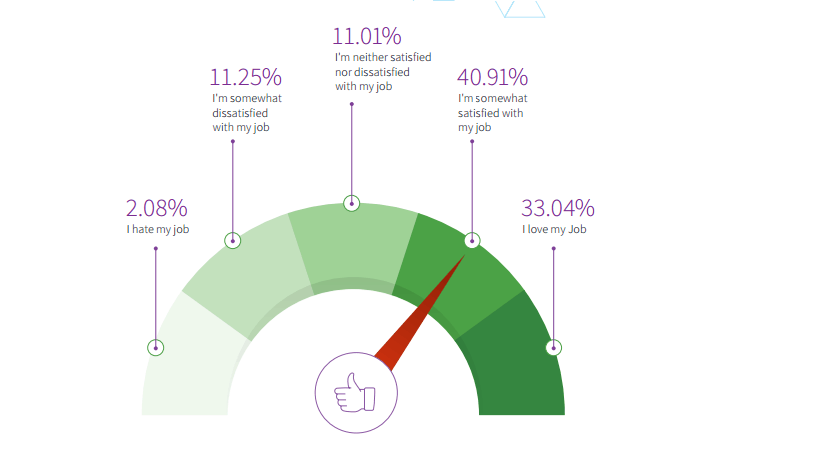 Source: Stack Overflow Global Developer Hiring Landscape 2016
Source: Stack Overflow Global Developer Hiring Landscape 2016
Job satisfaction
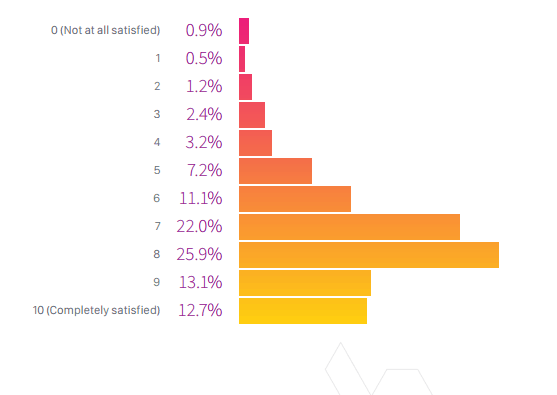 Source: Stack Overflow Global Developer Hiring Landscape 2017
Source: Stack Overflow Global Developer Hiring Landscape 2017
Openness to new opportunities
Only 24.8% of software engineers are not at all interested in new job opportunities.
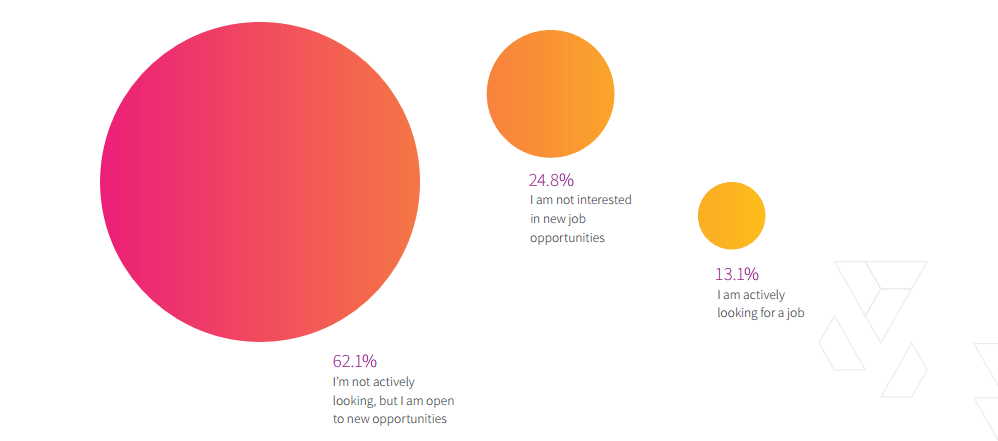 Source: Stack Overflow Global Developer Hiring Landscape 2017
Source: Stack Overflow Global Developer Hiring Landscape 2017Time spent searching for jobs
25% of them don’t devote any time to that activity.
Source: Stack Overflow Global Developer Hiring Landscape 2017
How developers find their jobs
31% of developers discovered their most recent job opportunity “through a recruiter of some sort”.
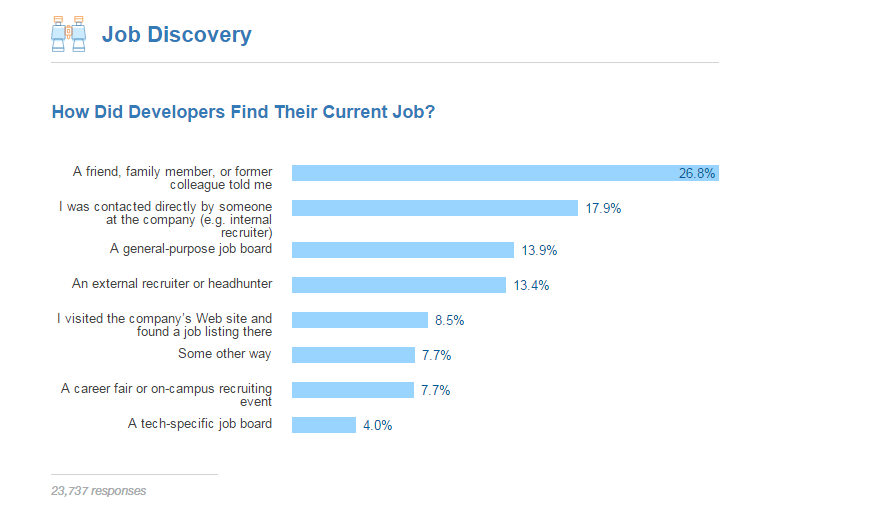 Source: Stack Overflow Global Developer Hiring Landscape 2016
Source: Stack Overflow Global Developer Hiring Landscape 2016
Power of referrals
Source: Stack Overflow Global Developer Hiring Landscape 2016
Software developers worldwide
Asia boasts an increasingly large population of software developers (34% of all developers in the world) “both through western outsourcing and the evolution of local markets”.
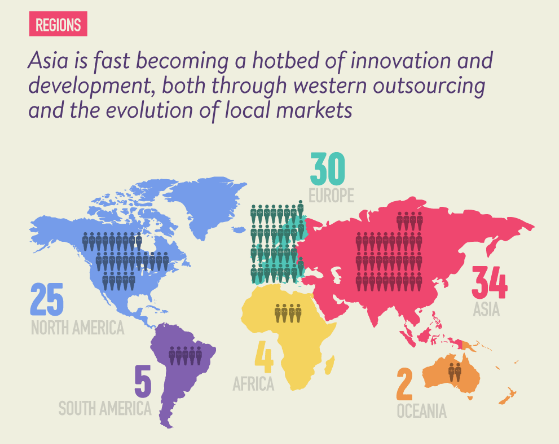
Source: Developer Economics Survey
Software developers and sectors
Developers typically work across sectors (mobile, Internet of Things, desktop and cloud), with 36% working in 2 sectors.
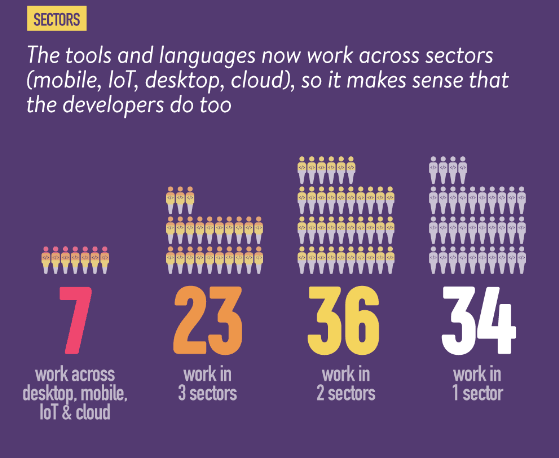
Source: Developer Economics Survey
The cost of hiring
The cost of hiring a software developer with in-house recruiters reaches $22,562 and $31, 970 for agency recruiters. With productivity loss and constructor cover these costs may exceed $60,000 – see the maths behind the calculation in this post.
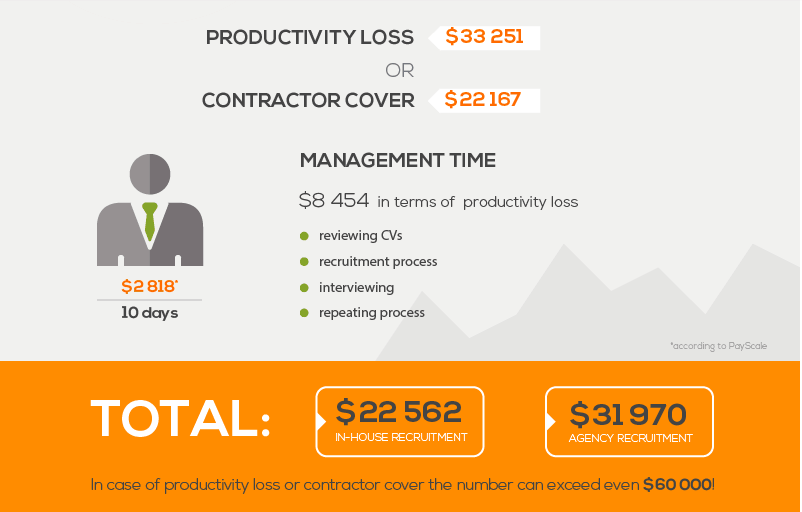
Source: Payscale, Quarsh, Wanted Analytics via DevSkiller
Things that should matter in recruitment process according to developers
Based on feedback gathered from developers, communication skills, reputation for getting-things-done, and knowledge of algorithms and data structures along with experience with specific toolsshould be most important in the recruitment process. The surveyed group claimed educational credentials, previous job titles and Stack Overflow reputation score were less significant in the process of hiring a great developer.
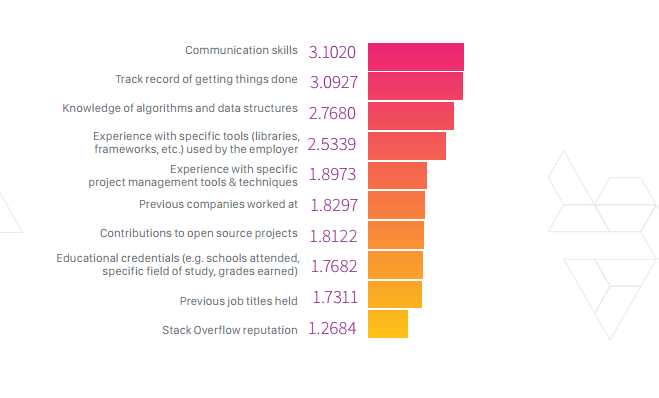
Source: Stack Overflow Global Developer Hiring Landscape 2017
How developers learn their skills
with 45.4% of them completing online courses and 41.2% listing on-the-job training as their education background.
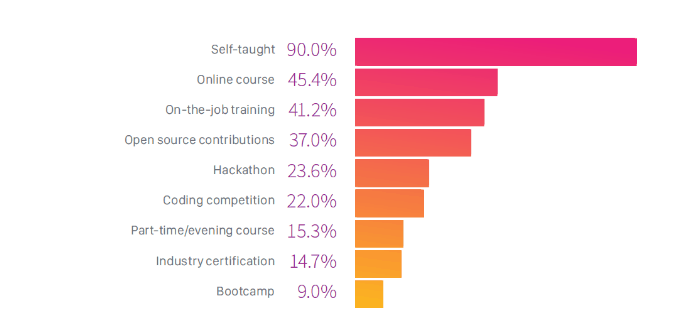
Source: Stack Overflow Global Developer Hiring Landscape 2017
This suggests tech recruiters shouldn’t consider formal education as a must-have requirement. Remember about this next time you’re working on the job description. Why is this important? Look at #12.
Talent pool & job criteria on LinkedIn
According to LinkedIn Talent Solutions, removing or altering just one job criterion increases the talent pool more than 6 times.
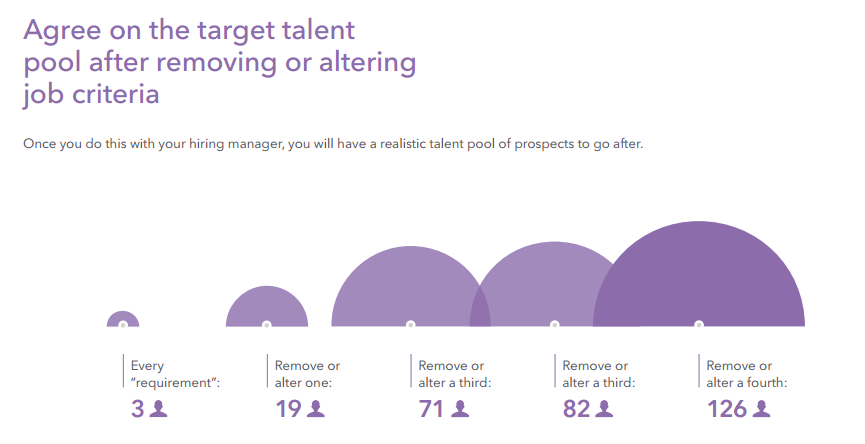 Source: LinkedIn Talent Solutions
Source: LinkedIn Talent Solutions
Software engineers & degree
Approximately a quarter have a graduate degree.

Source: Stack Overflow Global Developer Hiring Landscape 2017
Importance of formal education
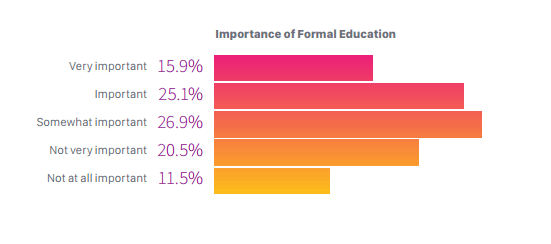
Source: Stack Overflow Global Developer Hiring Landscape 2017
Developers & LinkedIn account
Source: Stack Overflow
Talent shortage
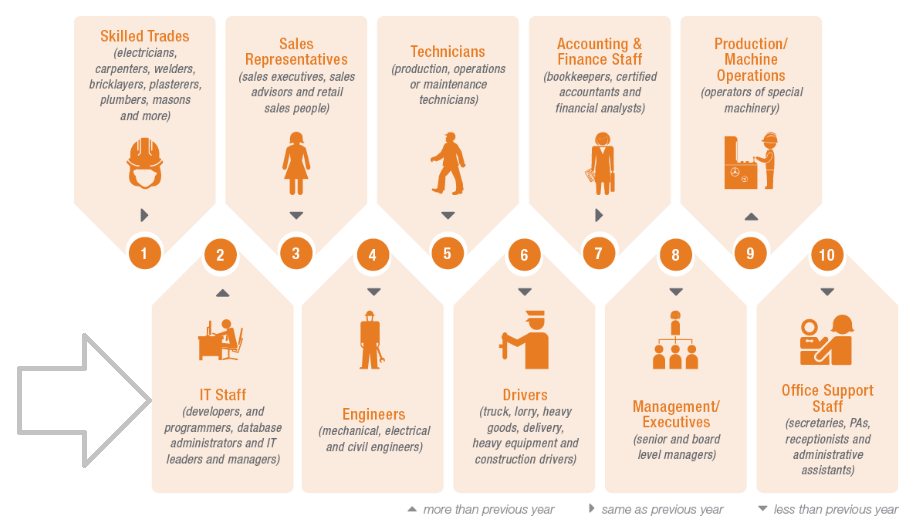
Source: Manpower Group
Global Developer Population and Demographics
By 2025, this number is expected to grow to 25 million. India is projected to have the biggest population of software engineers by 2021.
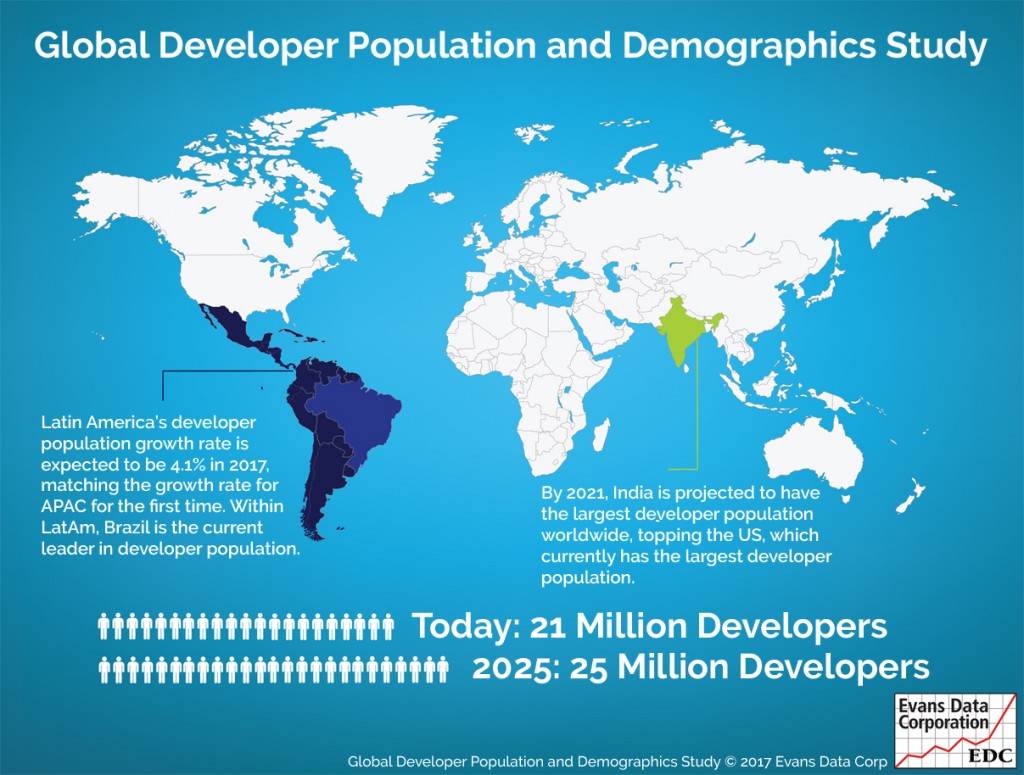
Source: Evans Data Corporation
Software experience
Developer population “grows from the bottom” which means there are many less experienced software engineers.
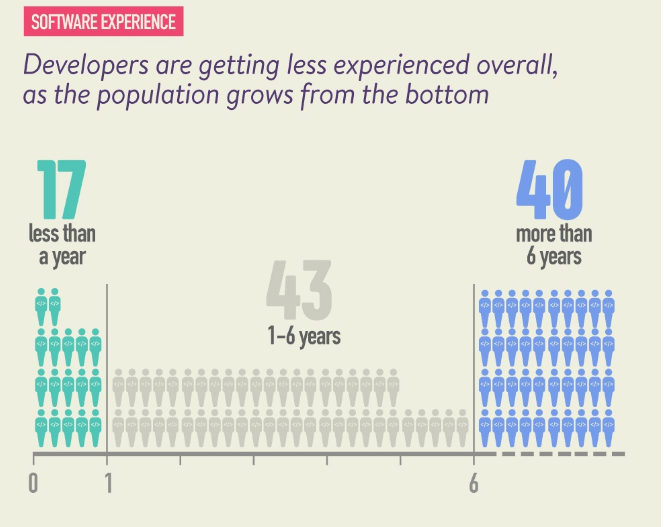
Source: Developer Economics Survey
Diversity
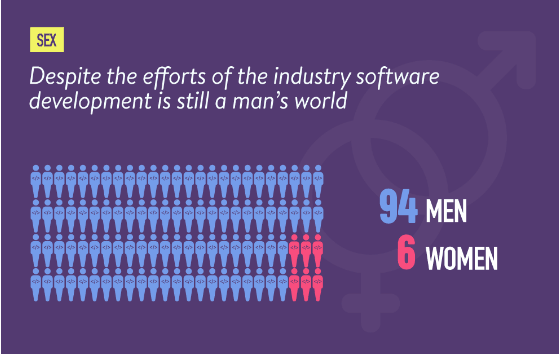
Source: Developer Economics Survey
Projected employment
From 2014 to 2024, 9.8 million jobs are projected to be added in the United States.
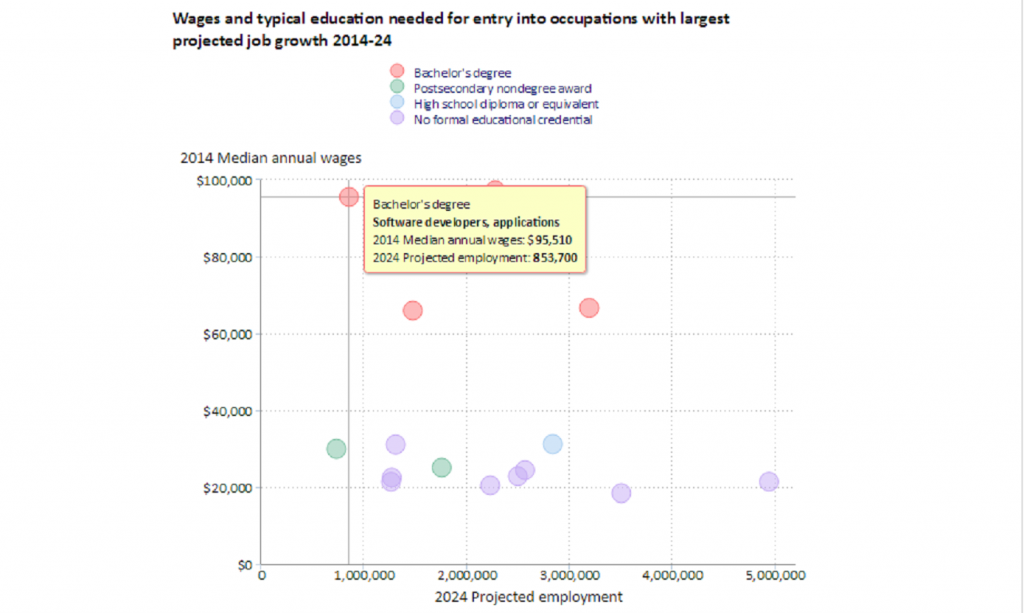
Source: Bureau of Labor Statistics
Projected employment
According to Bureau of Labor Statistics data, employment of software developers is “projected to grow 17% from 2014 to 2024” significantly faster than the average for all occupations due to high demand for computer software.
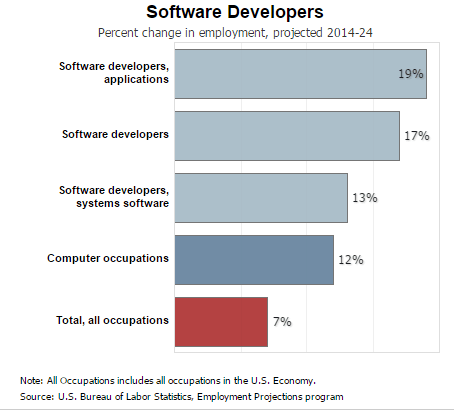
Source: Bureau of Labor Statistics
Software Engineer annual pay
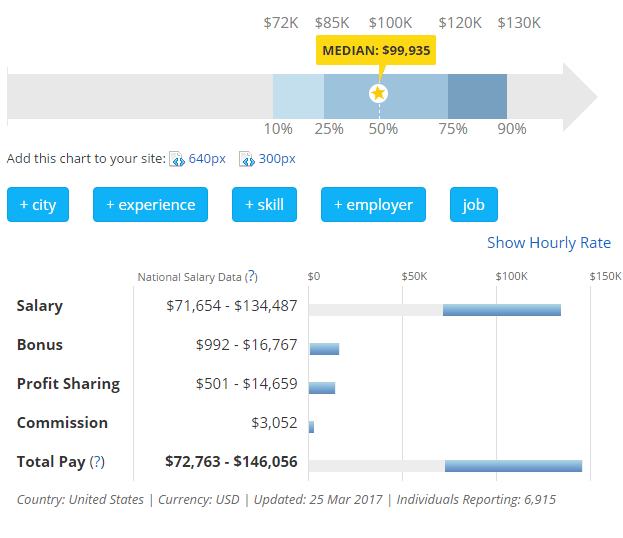 Source: PayScale
Source: PayScale
Software Engineer median annual pay
Based on Bureau of Labor Statistics data, median annual pay for software engineers equals $102,280 and $49.17% hourly rate.
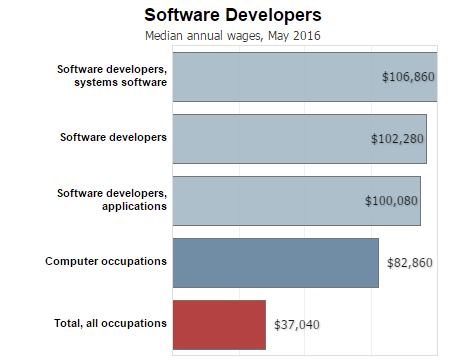
Source: Bureau of Labor Statistics
Software Engineer mean wage by state
Annual mean wage varies significantly across states with Washington topping the list ($129,940) and Puerto Rico coming last ($55,480).

Source: Bureau of Labor Statistics
Location quotient of software developers, applications by state
Washington, New Jersey and Colorado are the top three states with the highest concentration of jobs and highest location quotients (2.83, 1.88 and 1.79 respectively). Puerto Rico comes last with a 0.09 location quotient.
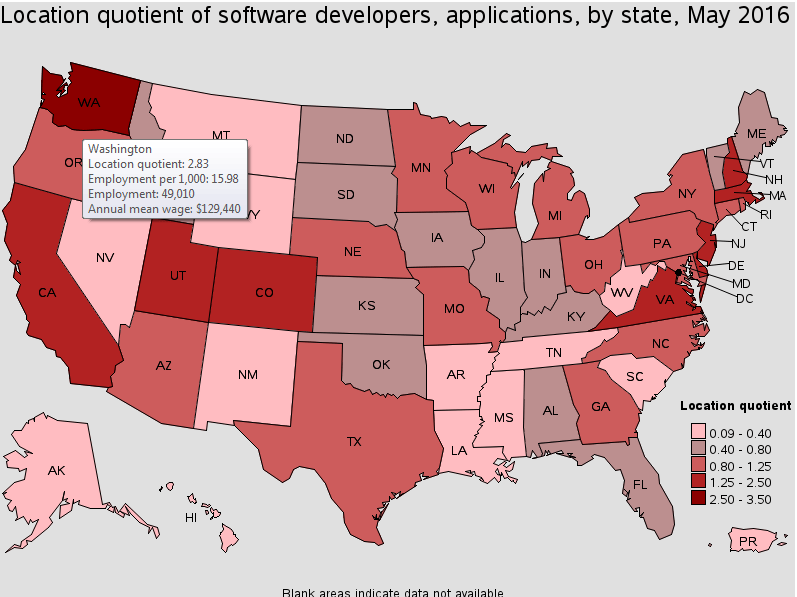
Source: Bureau of Labor Statistics
Coding as a hobby
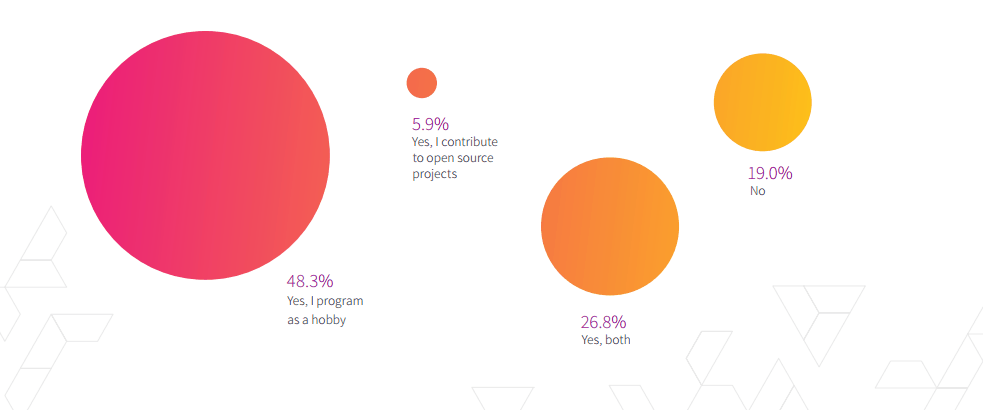
Source: Stack Overflow Global Developer Hiring Landscape 2017
How often developers change their job
While 32.3% of developers changed jobs less than a year ago, 20.8% accepted a new position between 1 and 2 years ago.
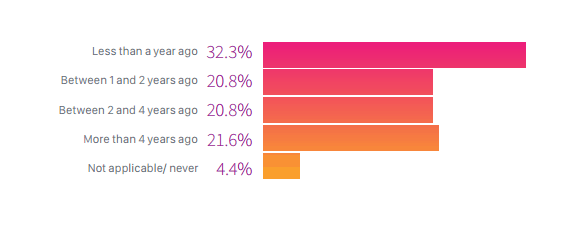
Source: Stack Overflow Global Developer Hiring Landscape 2017
What developers look for in a new job opportunity
Salary (62.68%), work-life balance (50.41%) and company culture (41.78%) are the top three aspects of a new job opportunity considered by software engineers.
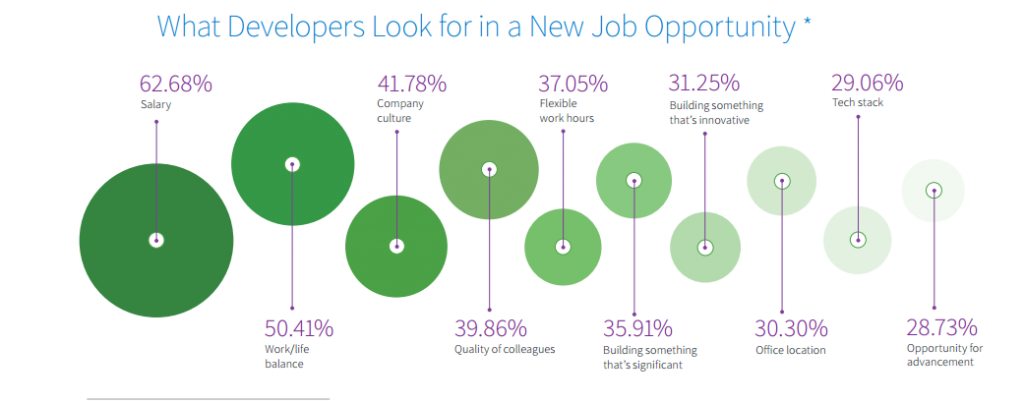
Source: Stack Overflow Global Developer Hiring Landscape 2016
What annoys developers in recruitment process
They also point out writing and updating CVs (15.11%), and writing cover letters (14.46%) as annoying.
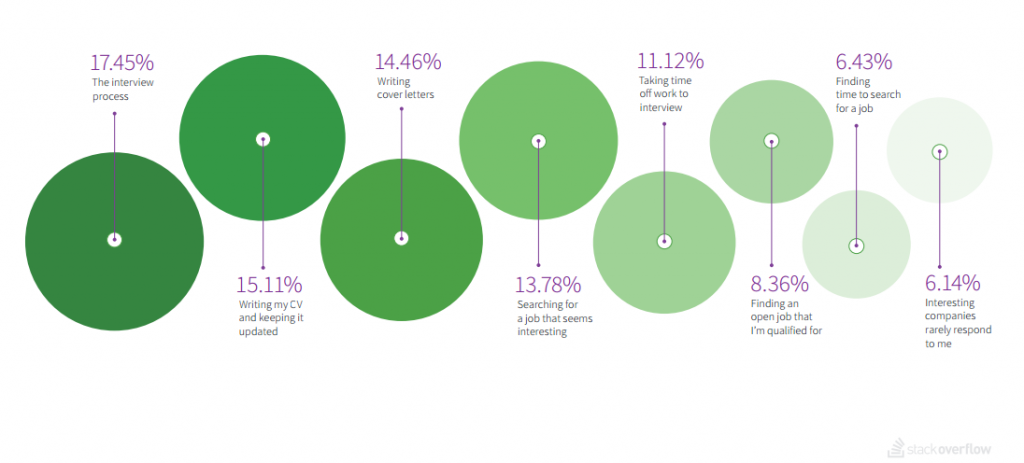 Source: Stack Overflow Global Developer Hiring Landscape 2016
Source: Stack Overflow Global Developer Hiring Landscape 2016
Ways to improve the recruitment process
From the perspective of the developers, top three ways to improve the recruitment process are as follows: introducing the candidate to the team (44.80%), showing more live code to the recruited developer (38.93%), presenting more space in which the person would potentially work (34.60%).
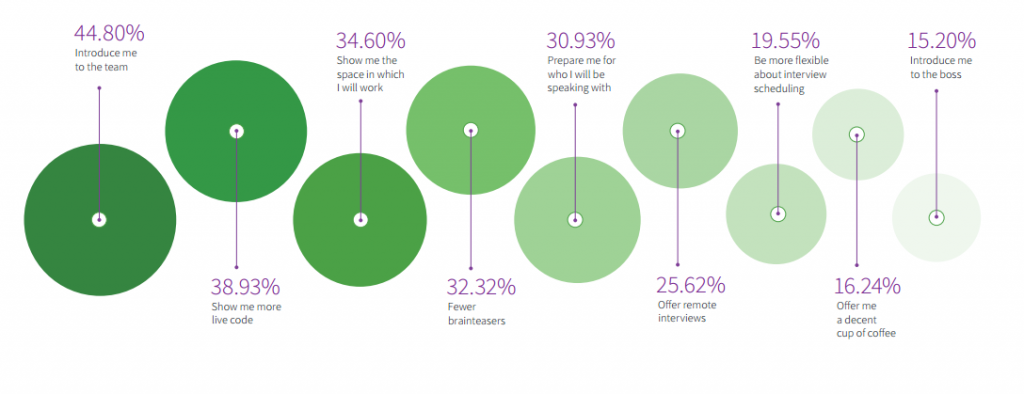
Source: Stack Overflow Global Developer Hiring Landscape 2016
Conclusion
According to projections cited in the post, software development is expected to grow faster than other sectors in years to come, also outside of the United States (keep an eye on India!). Although the population of developers is growing, it grows from the bottom which means recruiting for senior positions is going to stay as difficult as it currently is.
Looking at the data, it’s also possible to see that as a professional group, software engineers are highly motivated – many of them are self-taught, continue to educate themselves, and code after working hours. Even though most developers are passive candidates, majority of them are not in a job they love. This gives tech recruiters hope, but remember – you need to make sure your recruitment process is impeccable and be the opposite of the stereotypical tech recruiters developers typically complain of. Keep learning!




